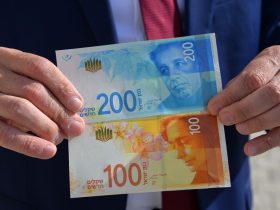The Federal Reserve (Fed) is facing growing concerns as inflation rose by 0.4% in September, partly fueled by increasing oil prices. This surge also affected the Personal Consumption Expenditures (PCE) price index, the Fed’s primary gauge for inflation, which climbed by the same percentage. Over the past year, this index has seen a significant increase of 3.4%, exceeding the Fed’s target of 2%.
Meanwhile, the core PCE rate, which excludes volatile food and energy costs, saw a slightly slower rise at 0.3%. This development was met with positive responses from Wall Street investors as the annual core inflation rate dropped to its lowest since June 2021 at 3.7%.
Despite these trends, Fed officials are not expected to implement an immediate rate hike in their meeting next week. The current inflation situation considered the harshest in four decades, is believed to be slowly subsiding. However, a full return to pre-pandemic levels is not anticipated until 2026.
The strategy employed by the Fed to increase interest rates to curb inflation could potentially lead to higher borrowing costs and dampen economic growth. Gus Faucher from PNC Financial (NYSE:) Services predicts a continued decline in inflation as the labor market softens and wage pressures ease off amid potential recession risks.
This article was generated with the support of AI and reviewed by an editor. For more information see our T&C.
Read the full article here










Leave a Reply